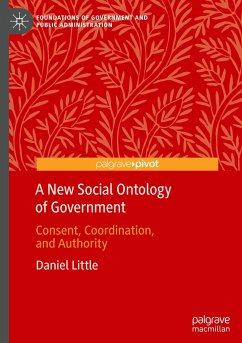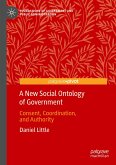This book provides a better understanding of some of the central puzzles of empirical political science: how does "government" express will and purpose? How do political institutions come to have effective causal powers in the administration of policy and regulation? What accounts for both plasticity and perseverance of political institutions and practices? And how are we to formulate a better understanding of the persistence of dysfunctions in government and public administration - failures to achieve public goods, the persistence of self-dealing behavior by the actors of the state, and the apparent ubiquity of corruption even within otherwise high-functioning governments?
Bitte wählen Sie Ihr Anliegen aus.
Rechnungen
Retourenschein anfordern
Bestellstatus
Storno








